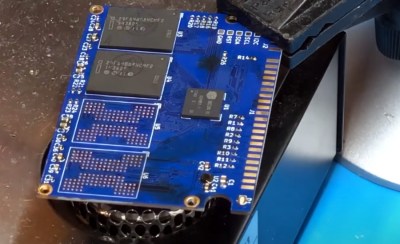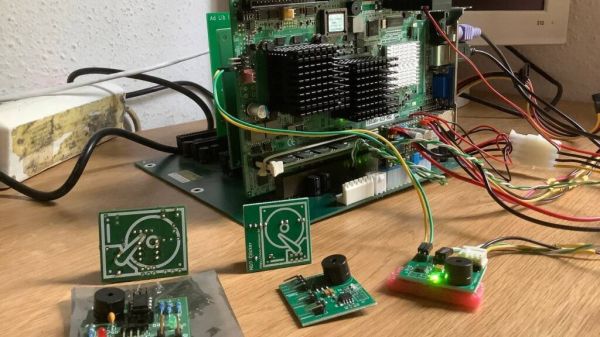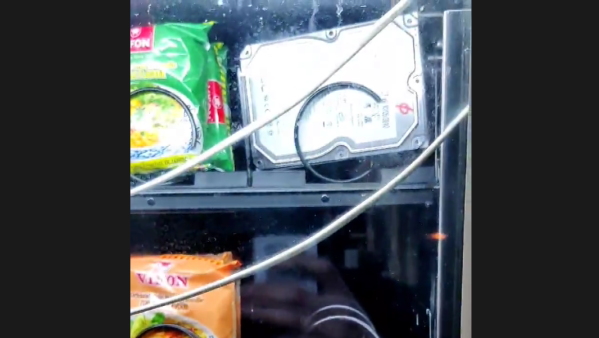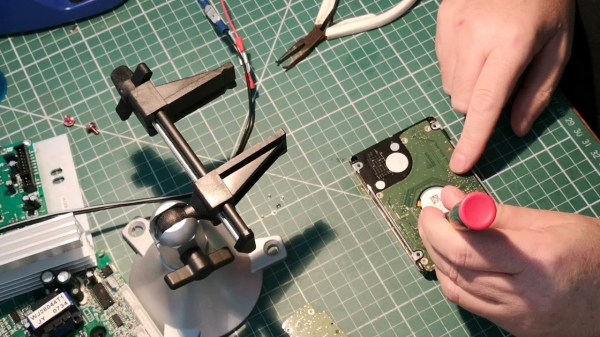This short video from [ProShorts 101] shows us how to build a variable speed disc sander from not much more than an old hard drive.
We feel that as far as hacks go this one ticks all the boxes. It is clever, useful, and minimal yet comprehensive; it even has a speed control! Certainly this hack uses something in a way other than it was intended to be used.
Take this ingenuity and add an old hard drive from your junkbox, sandpaper, some glue, some wire, a battery pack, a motor driver, a power socket and a potentiometer, drill a few holes, glue a few pieces, and voilà! A disc sander! Of course the coat of paint was simply icing on the cake.
The little brother of this hack was done by the same hacker on a smaller hard drive and without the speed control, so check that out too.
One thing that took our interest while watching these videos is what tool the hacker used to cut sandpaper. Here we witnessed the use of both wire cutters and a craft knife. Perhaps when you’re cutting sandpaper you just have to accept that the process will wear out the sharp edge on your tool, regardless of which tool you use. If you have a hot tip for the best tool for the job when it comes to cutting sandpaper please let us know in the comments! (Also, did anyone catch what type of glue was used?)
If you’re interested in a sander but need something with a smaller form factor check out how to make a sander from a toothbrush! Continue reading “Making A Variable Speed Disc Sander From An Old Hard Drive”


















